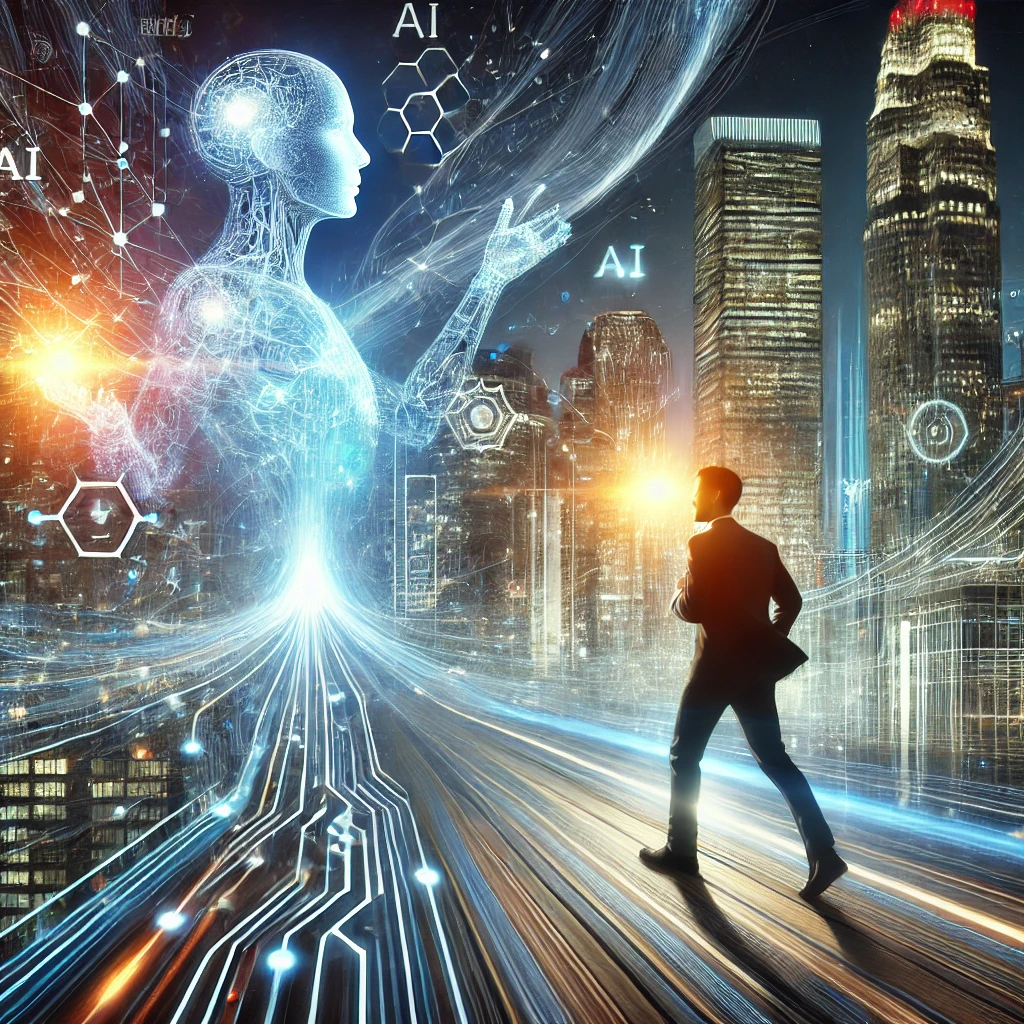Introduction
The rapid advancement of technology, especially in areas like artificial intelligence (AI), genetic manipulation, and automation, promises to radically transform human society. Technology is often seen as the key to greater efficiency, convenience, and even surpassing our biological limitations, as proposed by transhumanist philosophies. However, amid this progress arises a fundamental question: What happens to human autonomy in a world where technology increasingly controls our lives?
Autonomy, at its core, refers to an individual’s ability to exercise self-determination, independent of external influences. It is a cornerstone of modern democratic societies and ethical philosophies. In a technological future where algorithms, AI, and data increasingly influence the choices we make, tensions may arise between personal autonomy and technological control. This article explores the challenges to autonomy in a future increasingly shaped by technology.
1. Defining Autonomy and Technological Influence
To understand how autonomy is affected by technology, it’s essential to define autonomy. In philosophy, autonomy refers to the capacity of individuals to govern themselves and make moral and practical choices. It requires rational reflection, freedom from coercion, and a certain degree of control over one’s circumstances.
Technology, particularly in the form of AI and algorithms, functions by creating external structures that influence decision-making. Algorithms are designed to predict choices, guide behavior, and filter information, shaping our actions and preferences. The more we rely on these systems, the more they may limit our autonomy by reinforcing pre-programmed preferences and behavioral patterns.
2. AI and Algorithmic Decision-Making: Limiting Freedom of Choice?
One of the most tangible ways technology affects autonomy is through algorithmic decision-making. AI and algorithms are used to make decisions in a wide range of areas, from social media and news curation to financial markets and healthcare. This creates an environment where the choices we make are increasingly shaped by invisible forces.
- Filter bubbles and information control: Social media platforms like Facebook and Twitter use algorithms to curate the content users see. These algorithms are fueled by personal data and behavioral models, steering users toward content that reinforces their interests and preferences. This limits exposure to diverse perspectives, leading to information control and the formation of filter bubbles, where people are unable to make autonomous decisions because their choices are pre-shaped by the algorithms.
- Self-governing decision systems: In the financial world, banks and companies use AI to make credit decisions or optimize employment options. This leads to situations where people are assessed based on their digital profile, often without fully understanding how these decisions are made. When algorithms shape our choices, we lose a degree of control over our own life circumstances.
The question becomes increasingly pressing: To what extent is autonomy possible when technology increasingly shapes our decisions? If algorithms determine what information we see, what jobs we get, and how we behave, are our choices truly free?
3. Technology and Autonomy in Healthcare
Another critical area where technology profoundly impacts autonomy is healthcare. Medical AI, genetic manipulation, and biohacking promise a revolution in how we manage health and well-being, but they also raise questions about whether individuals can still retain control over their own bodies and medical decisions.
- Genetic manipulation and the loss of biological autonomy: With the advancement of genetic technologies like CRISPR, we can manipulate human genes to prevent diseases or alter physical traits. While this offers enormous benefits, such as eliminating genetic disorders, it also raises ethical questions. Who decides what constitutes an improvement? If these technologies are in the hands of elites or technocrats, they may decide which genetic changes become the norm, potentially limiting the autonomy of individuals.
- Medical AI and diagnostics: AI systems in healthcare can make medical diagnoses with greater accuracy than human doctors. While this is a boon for public health, it can also lead to situations where patients no longer fully understand or control their medical choices. If AI systems make automated treatment recommendations, without patients fully grasping these choices, it can undermine medical autonomy.
4. The Paradox of Autonomy in Transhumanism
Transhumanism promises to grant humanity more autonomy through technology that frees us from biological limitations. The idea is that technology such as cyborg-like integrations, immortality, and AI-enhanced intelligence will allow people to enhance their physical and mental capacities. But this raises a fundamental question: Is autonomy still possible if we become dependent on technology for self-enhancement?
- Technological dependence versus autonomy: If we become reliant on technology to enhance our bodies or extend our lifespans, this could paradoxically lead to a loss of autonomy. The technological systems that enhance us may end up controlling our lives. Installing cybernetic devices or integrating AI into our brains could mean that these technologies influence our decisions, emotions, and even thoughts. Rather than gaining more freedom, transhumanism could make us dependent on technologies that are beyond our control.
- Loss of autonomy to technocratic elites: Who controls access to these technologies? If only a small elite holds the power to develop and distribute transhumanist enhancements, it could lead to a society where technology is not liberating but oppressive. People without access to these technologies could be marginalized, creating new forms of inequality and limited autonomy.
5. How Can We Preserve Autonomy in a Technological Future?
The question remains: How can we preserve our autonomy in a future increasingly shaped by technology? There are several approaches we can explore to protect autonomy:
- Ethical regulation of technology: Policymakers and technology designers need to develop ethical frameworks to ensure that technologies support human autonomy rather than undermine it. This could involve developing ethical AI, where human values like autonomy, freedom, and justice are embedded in the design of these systems.
- Transparency and democratic control: To preserve autonomy, there must be transparency in how technological systems operate. People need to know how algorithms make decisions and how their data is being used. Democratic mechanisms of control should be implemented to ensure that technologies shaping society are accountable to the public, not just technocratic elites.
- Revaluing human values: In a world where technology is becoming more dominant, we must find a balance between technological progress and fundamental human values such as freedom, ethics, and responsibility. This requires a philosophical reevaluation of what it means to be human in a technological future, and how we can protect autonomy as a value that is as important as technological efficiency.
Conclusion
The future of autonomy in a technological world is complex and full of tensions. While technology promises to improve our lives and offer us new freedoms, it also poses challenges that can undermine our autonomy. Autonomy requires that we maintain control over our choices and circumstances, but as technology plays a larger role in our decision-making, this control may diminish.
It is crucial that as we advance technologically, we also develop ethical structures to ensure that technology does not destroy human autonomy. In a future where algorithms, AI, and genetic technologies shape our lives, autonomy must not be sacrificed for technological efficiency. We must remain vigilant to ensure that the technologies we develop support our freedom rather than bind us to invisible systems of control.




